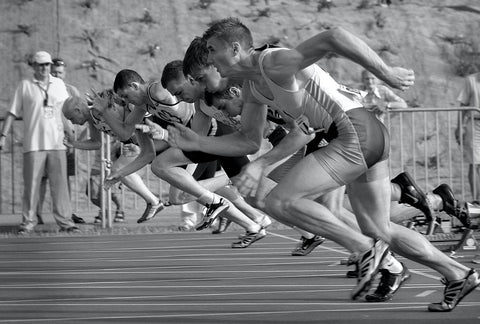Your Cart is Empty
FREE Shipping WORLDWIDE | $5 OFF Use Code SURF5BUCKS Expires on 6/4/2025
FREE Shipping WORLDWIDE | $5 OFF Use Code SURF5BUCKS Expires on 6/4/2025

One of the best things about sports is that it doesn’t matter where you come from or what you look like. It’s the ultimate meritocracy; if athletes perform well, they will get a chance to continue to play, and potentially earn large sums of money on a professional level.
Perhaps above all other areas of life, sports can provide an equal playing field(pun intended) for individuals looking to show how skilled they are at something.
However, just like any other large business or industry, the potential exists for certain nefarious influences to affect sports. Anything that involves odds such as college football lines, or the possibility of stacking the deck in one’s favor could be factors that can give an unfair advantage to a certain team or party.
While it would be unreasonable to say that these trends are widespread, any reputable sports league spends a lot of time validating that their business operation is above board so that the legitimacy of their brand is not questioned.

One of the single most important aspects of a sporting competition is the fairness of the event. There are many different forms that this can take, but some important areas to consider are with regard to equipment and officiating.
Especially in the worlds of hockey and American football, the difference between using a best hockey stick or an approved helmet and the alternative can heavily affect how safe players are, and how well they play.
It wouldn’t inherently be fair for one side to be using superior gear to another, if the opposition did not have the means to acquire the same type of products. This can also come into play in the world of baseball and cricket, with regard to the gear that players use to hit and catch the ball.
Officiating is the other big talking point in this topic, and there are so many instances where fans believe that the referees are purposely trying to affect the outcome of the game. That sentiment is largely based on the fervent passion they have for their team, but a league should be extremely cognizant of the individuals they hire to enforce a sport’s rules. Calling frivolous penalties or fouls can lead to extra chances for one team that might end up tilting the result in their favor.
Another angle of the discussion centers around the type of chemicals and supplements athletes put into their bodies. It’s possible that a player in any sport will want to take something that will help them react to plays faster, or give them additional strength to power through their opponents. This topic was incredibly prevalent after the 1990s, as Major League Baseball didn’t have rules to prevent its players from taking steroids during that era.
Most leagues have strict testing policies in place and a long list of banned substances that players are forbidden from taking. This has increased the amount of confidence the public has that players are not taking anything to gain an unfair physical advantage, but the reality is that science can always find a way to circumvent current testing measures. There are significant penalties for players who violate the rules, which may help to thwart someone’s idea of turning to performance-enhancing drugs in the first place.

Baseball now suspends players who test positive for steroids for half a season or more, which is a huge hit to their wallets. The NFL is also on top of its testing regimen and suspends players for a third of the campaign or more if they’re caught with anything prohibited in their system.
Athletes may not like the rigidity of the testing schedule or the harshness of the consequences, but they seem to be well-founded.
For a long time, professional sports leagues did not want to be affiliated with any location that was closely affiliated with casinos or gambling.
They did not want fans to think for even one second that a business relationship with anyone would compromise the integrity of their sport. However, due to the legalization of gambling in the United States, it appears as if that stance has softened somewhat.
For example, the NFL and the NHL have moved teams or created franchises in Las Vegas, which has long since been a scary market for anyone to be associated with. Since the Raiders and Golden Knights have called Las Vegas home, however, there really hasn’t been any issue with either league regarding its image. It seems like this partnership, along with the trust of leagues to promote their sport on different sportsbooks has evolved over time.
The worst scenario for any league would be something like what happened to Serie A. An investigation revealed that their business practices from ownership on down were not always on the up and up, and the credibility of the product suffered for a long time. It is why leagues heavily vet anyone who takes a position of power, in hopes of catching any potential issues before they begin.
ABOUT THE AUTHOR
Aleksandra Djurdjevic
Senior Content Creator
Aleksandra Djurdjevic is a senior writer and editor, covering surf, kayak and various watersports activities. She has previously worked as ESL teacher for English Tochka. Aleksandra graduated from the Comparative Literature department at the Faculty of Philosophy in Serbia. Aleksandra’s love for the ocean / rivers, getting out waves, season after season, seeking epic adventures across the globe helps her continue to be a top expert at CSG.

Your cart is currently empty